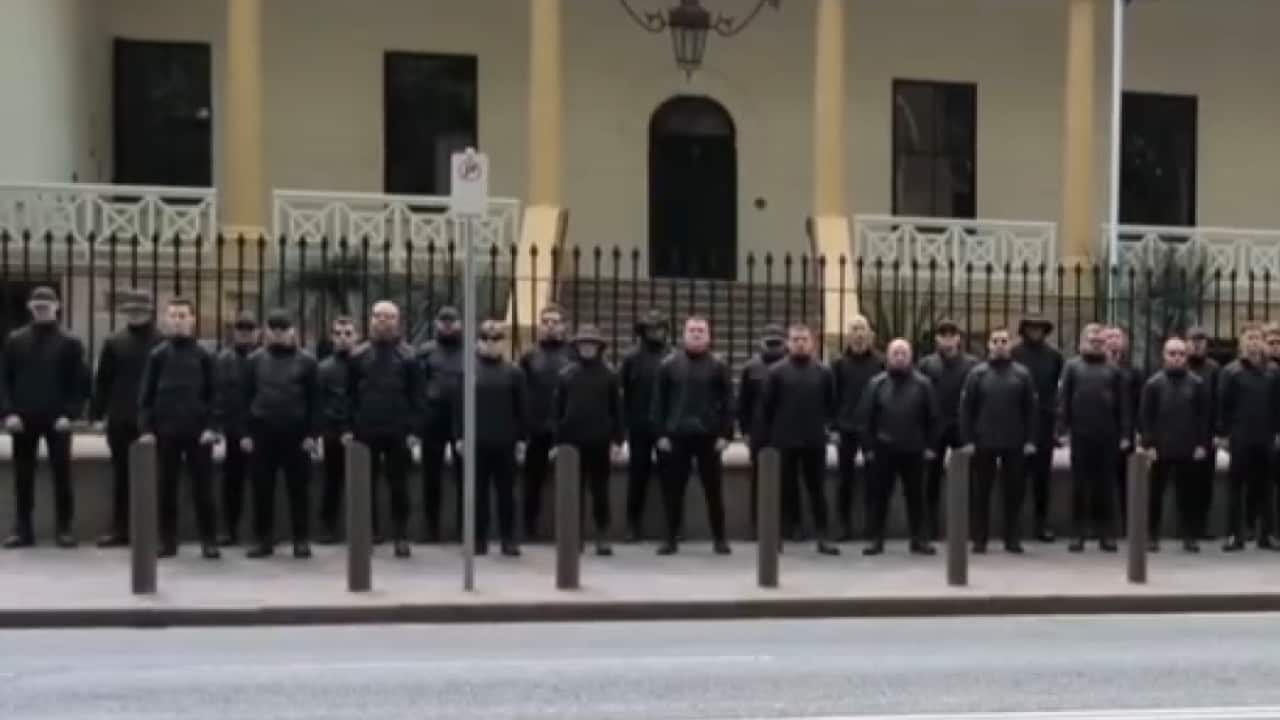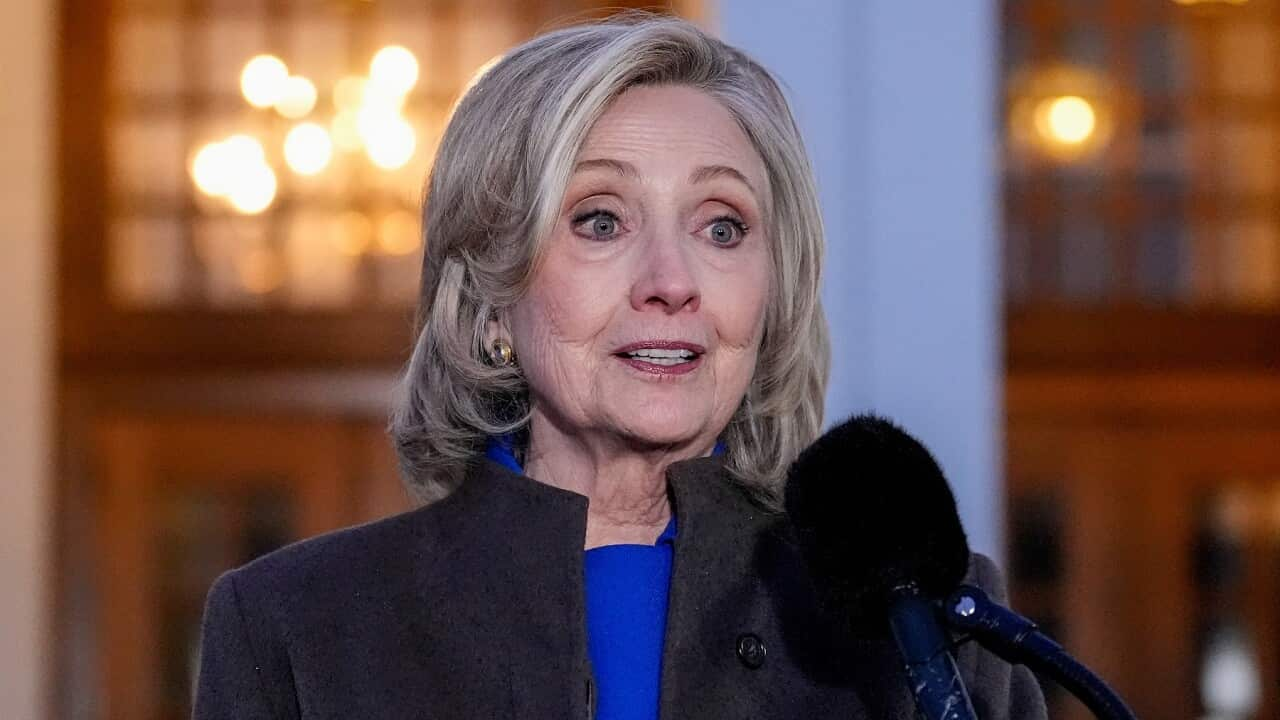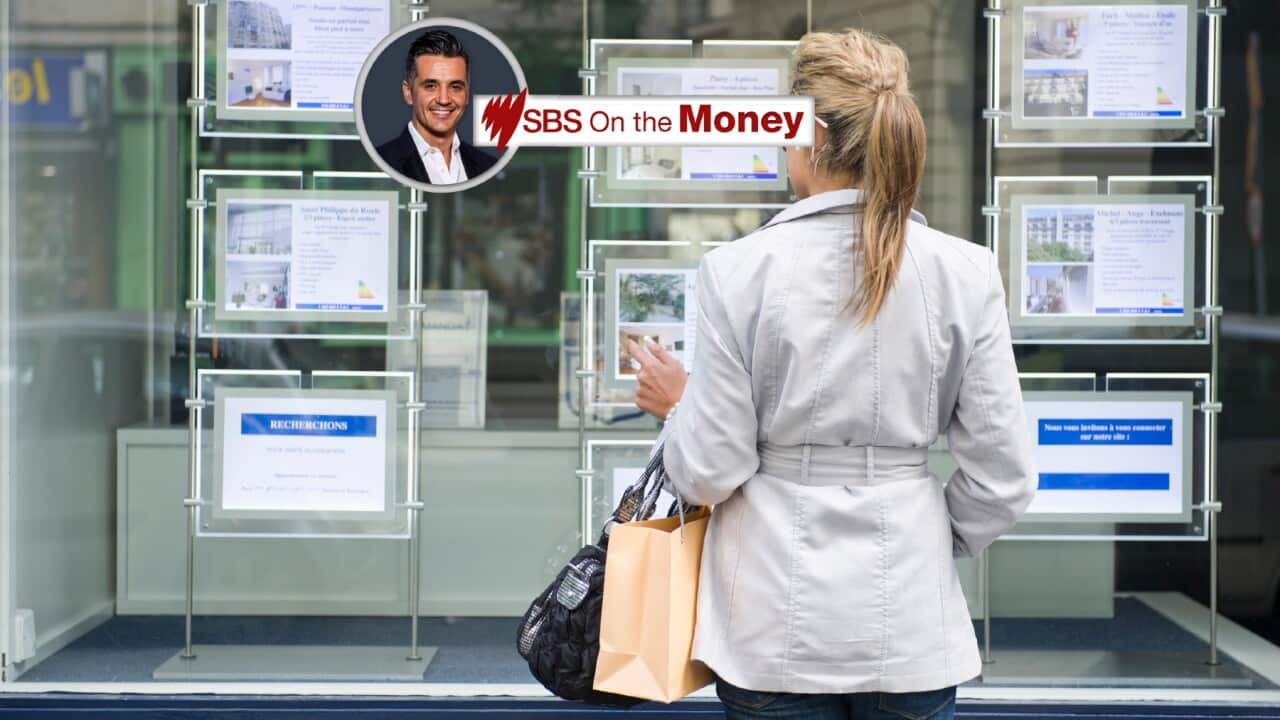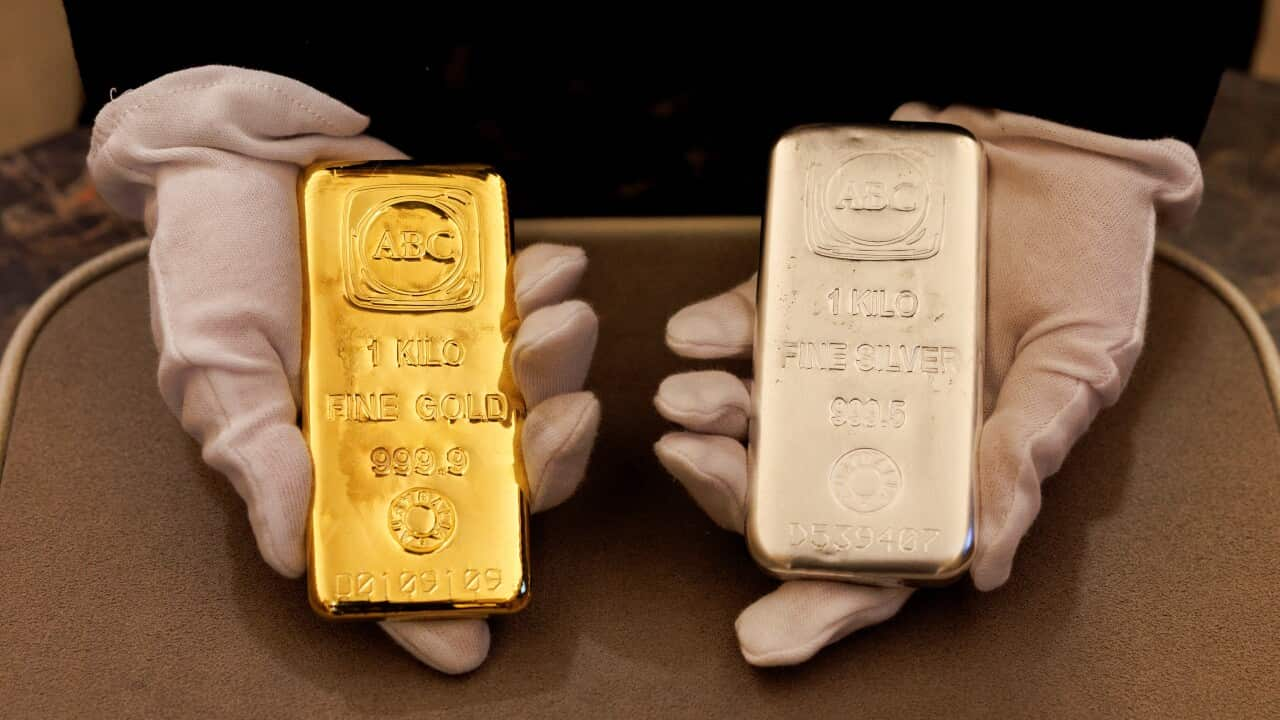Listen to Australian and world news, and follow trending topics with SBS News Podcasts.
TRANSCRIPT:
"It's a shocking display of hatred and racism and antisemitism in our beautiful, multicultural city... (a) disgusting behaviour on Sydney's streets. It's shameful, absolutely shameful."
That's New South Wales Premier Chris Minns describing a neo-Nazi rally held outside New South Wales Parliament on Saturday [[8 Nov]].
Around 60 black-clad members of the National Socialist Network, or N-S-N, gathered outside Parliament, chanting Nazi slogans and holding a banner that read "Abolish the Jewish Lobby".
In a statement, the Jewish Board of Deputies said the fact authorisation was given to an event targeting the Jewish community is, in their words "inexplicable, appalling and inexcusable".
State opposition leader Mark Speakman agrees, saying the government has some explaining to do.
"It was the Jewish community yesterday, it could be any other part of our multicultural community in the future. It could be the Islamic community, the Indian community, other groups from non Anglo-Celtic backgrounds. This is intolerable."
So how did this happen?
The demonstration was authorised by New South Wales police under the state's protest laws.
In New South Wales, groups planning a protest can seek authorisation by submitting what’s known as a 'Form 1', notifying the police of the plans for their assembly - and if at least seven days' notice is given when a Form 1 is submitted and a court has not prohibited the gathering, it is considered an authorised public assembly.
New South Wales Police can oppose the assembly during that period by taking the matter to court.
But the neo-Nazi who submitted the Form 1, on behalf of N-S-N's parent organisation White Australia, Jack Eltis, says getting approval was relatively simple.
"It's a very straightforward process. We've done it before and it's part of obviously as you're aware, New South Wales legislation, that we have to submit the form 1. And yeah, it was just approved. They obviously sought legal advice and we stayed well below the legal threshold of what would be considered under these new hate speech laws, hate speech. So we were all good to go."
A statement from New South Wales police says they determined the event was not a danger to public safety, and legal advice was sought in regard to the proposed banner.
They determined it did not constitute an offence.
Both Premier Chris Minns and Police Commissioner Mal Lanyon say they were not informed of the protest until it occurred, but the commissioner has told Sky News that if he had been advised, he wouldn't have acted any differently.
"It's not fair for me to second guess the decision of the commander at the time and to be honest, based on the information that was in the form 1, based on our legislation and what the previous interactions we've had with the group, the decision was not inappropriate. I don't believe we had grounds to oppose it."
The neo-Nazis previously held a rally outside parliament in June, which was also authorised by police.
Deakin University research fellow, Dr Callum Jones, says groups like the N-S-N are careful to maintain this positive rapport with authorities.
"These groups are very cautious to not directly antagonise police so that they don't have their rallies shut down. While considering whether or not these kinds of rallies should be permitted within Australia, I do think it is essential to consider the underlying political ideology of these groups and how sympathetic they are to the use of political violence."
Commissioner Lanyon says the decision to approve the rally will be reviewed.
Premier Minns has suggested police powers to shut down protests should be expanded after the rally.
"We don't want to tolerate and we don't believe we should tolerate a kind of city where that white power hatred, naked antisemitism and racism is on Sydney streets. I want them to be there with the clear and unambiguous message from the government, from political leaders, from civic life, from average New South Wales residents, that we've got no interest in neo-Nazis in Sydney and in Australia."
Mr Minns also says his government will reintroduce laws targeting acts of protest outside places of worship after a similar earlier measure was found to be unconstitutional by the Supreme Court.
Senior lawyer at the Human Rights Law Centre, Arif Hussein, says the sanctioning of the neo-Nazi demonstration appears to be hypocritical for a state government which has upheld harsh protest penalties and restrictions.
"Earlier in the year, we saw some knee-jerk laws and policies being introduced to curtail protests in response to a rise in antisemitism and then to see a self-proclaimed neo-Nazi group given the opportunity to spew such hatred is shocking and I think there's no excuse for it."
The N-S-N was founded by neo-Nazi leader and convicted criminal Thomas Sewell.
He is currently facing charges of 25 offences including alleged violent disorder and assault after a group of N-S-N members broke away from the March for Australia protest in Melbourne back in August, storming the First Nations site, Camp Sovereignty.
Mr Hussein says the group's history of violence should have disqualified them from a lawful gathering in the first place.
"They assaulted people at Camp Sovereignty and chanted racist slurs while walking up the hill. So it is clear that these groups have a violent element. The violent element is clear in their actions, physically attacking people, but also in their rhetoric. And then the gathering that we saw on the weekend should be illegal and morally reprehensible."
Police are reviewing audio of the protest to determine whether any laws were broken under new hate speech laws which came into effect on the 15th of August.
The laws make it a crime to intentionally incite hatred against people because of their race, nationality or ethno-religious background, with penalties including up to two years in prison or an $11,000 fine.
Premier Minns says his government plans to expand existing hate speech legislation to include the use of Nazi chants, hoping to provide more obstacles for neo-Nazi groups.
"Can it also accommodate Nazi speech, Nazi behaviours on Sydney streets? And secondly to clarify and codify that a form one application doesn't give you a free pass when it comes to hate speech laws in the state."
However, Dr Callum Jones says neo-Nazi groups have been quick to adapt to these kinds of policies in the past.
"The issue is that these groups will just adopt different kinds of insignia, different kinds of slogans and gestures and so on, and it becomes increasingly difficult and not particularly effective. We've seen that they haven't done a great deal to curb their ability to continue to perform the same kind of political activism that they have been doing for some years and it seems as though they are intent on continuing doing."
Lawyer Arif Hussein says the government needs to invest in programs to de-radicalise individuals and promote social cohesion.
"I don't think we will be able to get ourselves out of this rut at the moment by just legislating or curtailing on specific behaviours. That could be a part of the solution but what our governments at all levels should do is take this seriously and start listening to communities and start investing in community led education programs that deescalate and challenge racism and hate at its root."













